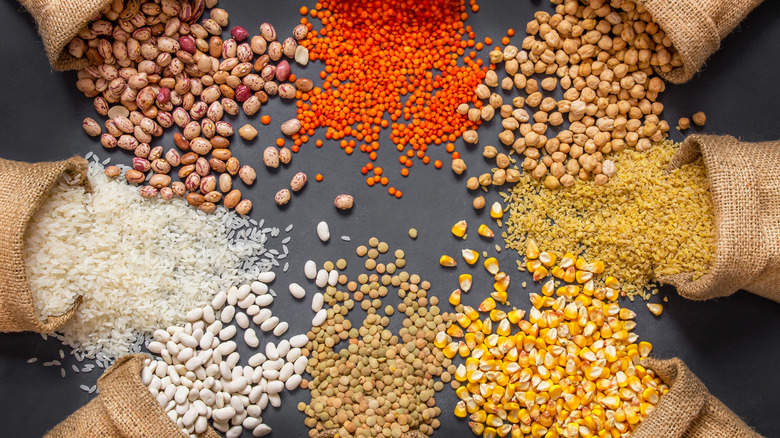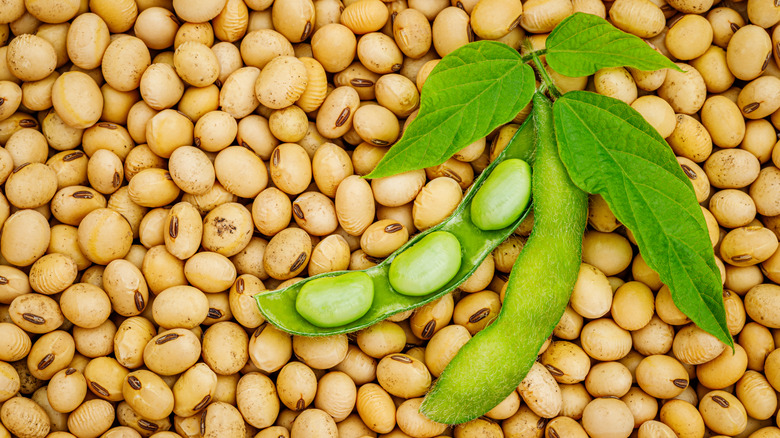This Bean Contains The Highest Amount Of Protein Per Serving
Protein: it's not just for bodybuilders. Dietician Nancy Waldek explains that the human body doesn't naturally store protein, so folks need to consume protein regularly through their daily diets to create, maintain, and fuel cells, via Piedmont Healthcare.
Since everybody has different activity levels and calorie needs, it should come as no surprise that the amount of protein you should eat in a day varies from person to person. According to Harvard, a person's Recommended Dietary Allowance for protein is 0.8 grams per kilogram of their body weight. For example, a person weighing 130 pounds would have an RDA of 46.8 grams of protein per day. In order to calculate your personal RDA, Harvard says, you can multiply your own weight in pounds by 0.36. Animal sources might be high in protein, but they're also high in saturated fat, according to Livestrong. Plant-based protein sources like beans provide an easy and healthy way to bypass unwanted fat content and still fulfill your daily protein quota.
So, what's the best way to pack as much protein into your diet from a plant-based source? Enter: the bean. Soybeans, to be exact.
Yay for edamame
Boiled soybeans (also known as edamame) pack the most protein of any bean — just ½ cup will provide 32% of the recommended total daily protein for a 2,000 calorie diet, per SF Gate. Since the standard serving size for beans and legumes is ½ cup, cooked, via The Kitchn, a small bowl of soybeans could theoretically give you all the protein you need for an entire day. According to the USDA, one cup of chickpeas contains 10.7 grams of protein. By comparison, one cup of soybeans contains nearly three times as much protein: 29 grams, per Healthline. In fact, it says, 36%-56% of the dry weight of soybeans is just raw protein. If you need another reason to give it a try, edamame is also high in iron and calcium, low in calories and cholesterol, and is naturally gluten-free, per Medical News Today.
To incorporate more edamame into your weekly meal plan, try roasting canned edamame, tossing it into your salad for an unexpected fresh component, or crisping it up in a skillet. Plus, according to a study by Jessica H. Savage, MD, although 0.4% of kids are born with a soy allergy, roughly 50% of them outgrow it by age 7, via the Journal of Allergy and Clinical Immunology. So, chances are, you're probably in the clear to chow down on some sweet, sweet edamame with nothing but health benefits.

